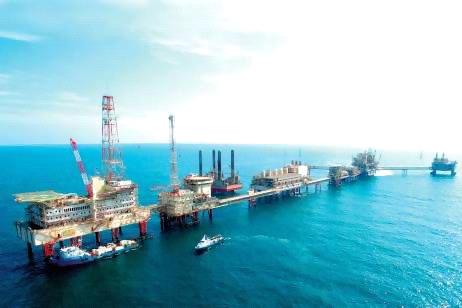Ammon News - DUBAI (The National) - Like it or not - but the world's thirst for energy isn't going to let up any time soon. On the contrary, according to the Paris-based International Energy Agency, global energy demand will roughly double by 2050, driven largely by the expanding economies in Asia but also in Africa and parts of South America.
As the world demands more energy, the oil industry is taking on new, harder-to-access hydrocarbon reserves - including unconventional ones such as North American shale that have become economically feasible to develop in recent years - while at the same time seeking to extend the working life of existing assets to maintain output. This, in turn, has put a firm focus on asset integrity, making it a top priority for many operators around the globe.
Ensuring asset integrity in the oil and gas industry is particularly critical because failure to do so jeopardises production, people's safety and the environment, and thus may have a negative effect on companies' operations and profitability. In the Middle East, where the national oil companies are entering a new era of post-easy oil and starting to venture into technically more complex projects and hydrocarbon reservoirs, managing the integrity of new and existing assets is therefore becoming increasingly important for operators.
Many existing operating assets in the region - in particular in offshore locations - are 30 to 40 years old and are producing at their maximum installed capacity, often under harsh conditions. Many wells are being used beyond their lifespan, which introduces significant uncertainty about their integrity during the remaining service life.
Unlike in other hydrocarbon-rich regions, oil and gas resources in the Middle East were in the past very easy to access. For operators, this has meant high productivity and low costs, which has allowed them to absorb any business inefficiencies that may have resulted from poor asset integrity management.
As costs rise or supply continuity becomes more critical, however, so does the significance of asset integrity and efficiency, which has led to increasing global use of digital oilfield techniques.
Some national oil companies have recognised the importance of establishing a clear picture of the well status, for example, so that uncertainties and risks can be managed better in the long term. Still, this approach is not universally applied in the Middle East.
One of the risks national oil companies in this region might run into - just like national operators in other parts of the world - is failing to acknowledge the need to change their strategy to manage ageing wells and infrastructure, and invest accordingly. The United Kingdom for example, has produced an industry-leading set of standards for well-related activity, which is recognised internationally.
So far, this type of investment in the future of the industry is not seen in the Gulf region on a larger scale.
The issue is one of particular relevance in Abu Dhabi, where Adnoc is seeking to renew its onshore oil concession by early next year and its offshore concession by 2018. One of the key questions here is whether the requirements for any new licence holder will include management of well integrity to a specific standard.
For the oil industry at large, there are other critical issues to be looked into, including how companies can ensure that those individuals with a stake in asset integrity truly understand the core concepts involved in effective integrity management and how their actions and decisions can have a major effect on a company's ability to operate safely and efficiently.
As such, constant training and education of the workforce is vital to ensure a thorough understanding of the risks on the one hand and to enable workers to take personal ownership on the other. At the same time, there is a need to increase the focus on quality during the procurement process so that long-term reliability can be a significant part in any commercial evaluation. Moreover, at a time when the industry is facing a global skills shortage that is going to worsen over the next 10 years, there are signs that knowledge and skills required for satisfactory management of well integrity are increasingly in short supply too.
This is a particular challenge given that the specific skill set needed to address integrity management issues is typically acquired over a prolonged period of relevant work. It is therefore essential that the industry constantly works towards developing and training a capable labour force.
Among the initiatives that could be implemented across the Middle East is building research and developing facilities dedicated to asset integrity. This could be of particular interest in the Gulf region, where Abu Dhabi, Qatar and Saudi Arabia have already launched energy R&D centres with global aspirations.
The advantage of developing local R&D capabilities would have a number of benefits, notably raising specialist technical capabilities and steering R&D to resolve issues relevant to the Arabian Gulf region. It would also support regional countries' ambitions to build knowledge economies.
